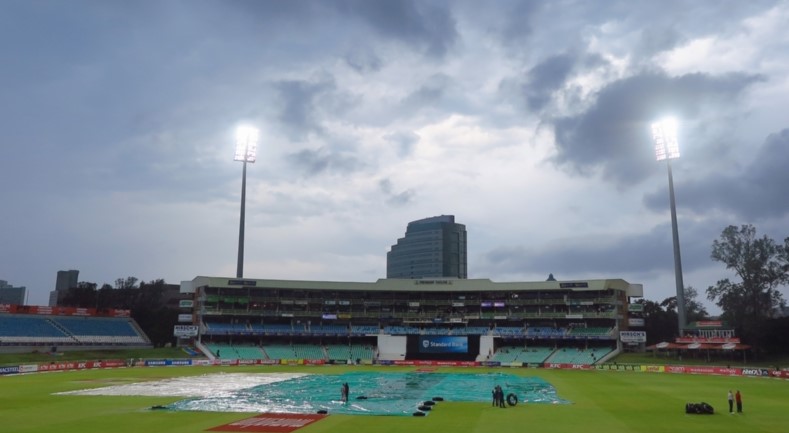A British study on climate change, saying the game is under threat, should ring alarm bells at South African cricket clubs.
A report by the Climate Coalition says cricket in England will be the hardest-hit sport by weather pattern changes.
It will not go unnoticed that all club and school cricket in the Western Cape has been cancelled because of the drought, while the two big tournaments so far completed, the Ram Slam and the Momentum One-Day Cup, were severely hit by rain.
Even if the disruptions in South African cricket are not attributed to climate change, some of the conclusions have resonance in South Africa.
Cardiff-based club Glamorgan has lost 1,300 hours of cricket since 2000 as a result of extreme weather and rainfall.
‘Losing so much cricket is a county’s worst nightmare – it affects the club at every level,’ said Glamorgan head of operations Dan Cherry. ‘It’s difficult even for first-class counties to be commercially viable with such an impact.
‘People won’t come back if this keeps happening, and it’s damaged the club.’
More than a quarter (27%) of England’s home one-day internationals since 2000 have seen reduced overs because of rain disruptions, while the rate of rain-affected matches has more than doubled since 2011.
The England and Wales Cricket Board (ECB) spent £1-million in emergency grants in 2016 and £1.6-million in 2017 to support clubs and restore their facilities and have set aside £2.5-million a year for small grants to help club sides keep matches on.
There is the risk that increasingly disrupted cricket will lead to people no longer getting involved in the sport. According to the report, nearly 40,000 fewer people played cricket in 2015-16 than in 2005-06, a fall of almost 20%.
Photo: Anesh Debiky/Gallo Images







